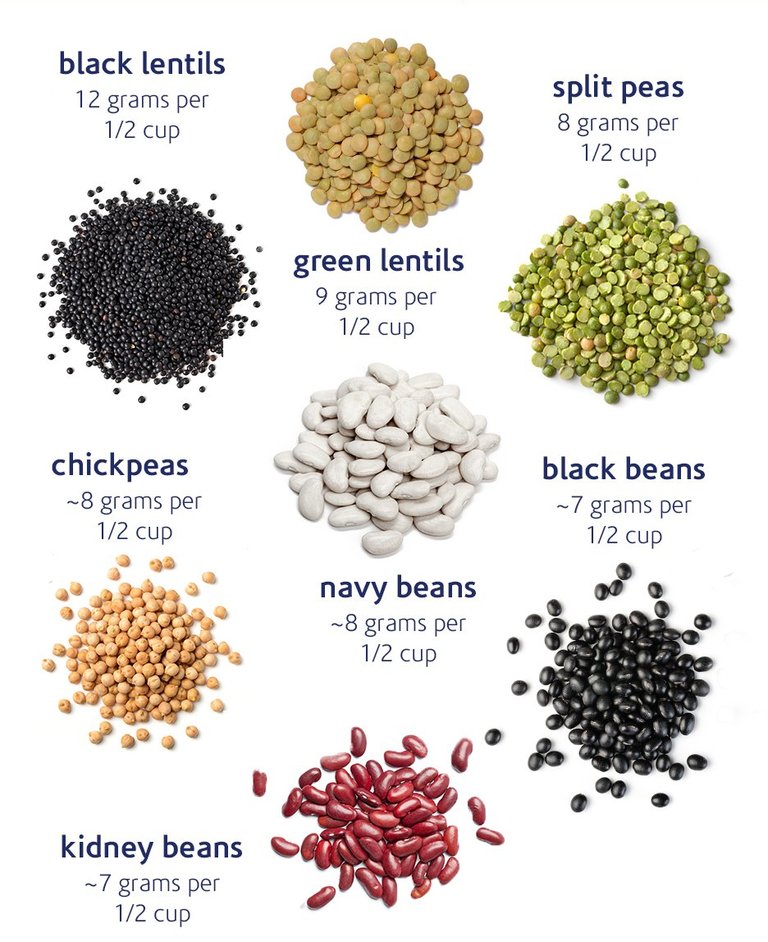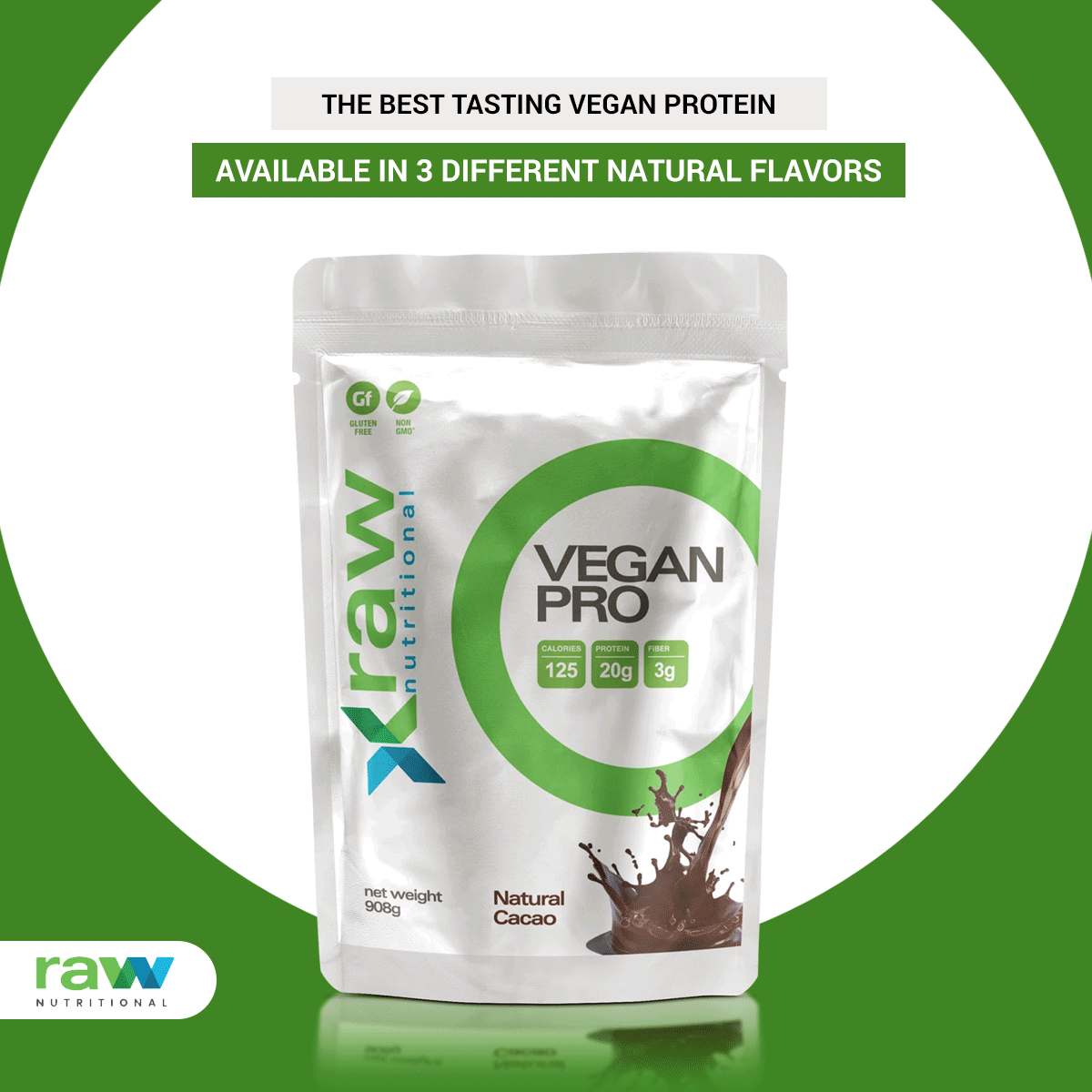
Increasing protein intake in the diet is all what most of the fitness freaks today look for, but the problem is that most protein-rich meals feature large chunks of meat, eggs, and dairy items, which you probably want to avoid being a vegan.
9 Ways to Increase Your Protein Intake
Generally, it is tough to figure out good protein sources if you are not willing to eat as many animal products.
So, to make it easy for you, here is a list of all the possible alternative food items that you can have a go for boosting your protein intake:
1. Lentils are a Great Source of Protein

Yes, you might have heard that lentils are an amazing source of protein and probably the best when you are looking to avoid dairy, meat and egg items. Amino acids, fiber, and many key minerals, i.e., zinc, iron, and magnesium, potassium, etc., which are vital to building lean muscle mass, are present in lentils.
You can easily get 11 grams of protein, 13 grams of fiber and only 1 gram of fat per ¼ cup of dry lentils. This makes lentils an incredibly lean source of protein and also the best to promote a healthy heart and effective digestion.
Try them out with...
Remember, the next time you make chili soup or a meatless casserole, you can use lentils to stuff tacos in place of meat or top salads with them.
2. Take a daily Dose of Hemp Seeds

Hemp seeds, similar to lentils, contain all the necessary amino and are full of protein, which makes them a perfect plant-based protein source.
Three tablespoons of hemp seeds contain about 12-14 grams of protein, depending upon the variety. Hemp seeds are also the best plant-based source of magnesium and iron among all other grains, beans, and legumes.
Try them out with...
You can try out hemp seeds with your next smoothie or make your own energy bars and bites them with hemp seeds. Adding hemp seeds to salads, baked goods, or using them in place of flour when baking is also an excellent idea that you can count on.
3. Have a Fist of Almonds

Almonds are feature-rich and a decent protein source being a nut. You easily get 7 grams of protein through an ounce of almonds (roughly 22 almonds).
Try them out with...
Add some almonds to your next salad, eat them as a snack, or use almonds or almond butter in your smoothie or morning oatmeal. You can also make your own energy bars and bites with them and use almond butter in place of eggs and oil when baking.
You can mix almonds or almond butter with your morning oatmeal, eat them as your snack or also mix them in your salad. You can also prepare your own energy bars and bites them with almond. Populous eating options are there whenever you think of almonds.
Although, you must avoid high intake of almonds as they are high in fat and can cause stomachache if eaten many in a single go.
4. Taste some Tahini

If you are someone who is unfamiliar or never heard of Tahini before, then you must. Tahini is simply ground sesame seeds or sesame seed butter, tastes delicious every time you eat it.
Tahini is an amazing source to satisfy your body's Vitamin E, magnesium, and zinc needs. An Ounce of Tahini or about two tablespoons contains 8 grams of protein and approx. 15% of your body's daily iron needs.
You can use Tahini in place of almond or peanut butter if nuts don't woo you well while eating. It has a unique flavor and keeps your heart in an optimal state.
Try them out with...
Tahini has a unique savory and delicious taste; you can try it with almost any dish, including sweet and savory ones. As a salad dressing ingredient, tahini shines and also complements porridge, smoothies well or any other dips where we use a variety of nut butter.
5. Have a serving of Black Beans

You get a whopping 15 grams of protein per cup of Back beans and is also a good source for your body's iron and magnesium needs. Bodybuilders, athletes, and other fitness freaks love black beans a lot, and overall is a quite healthy food option.
Try them out with...
In Mexican dishes like tacos and fajitas, black beans shine like a star. That's not all; you can mix black beans almost anywhere in your meals like salad, stew, soup, or make a meatless burger with black beans.
The best parts about using these beans in they are incredibly delicious and are used as a go-to meat alternative among by bodybuilders.
6. Greet and Eat Quinoa in Style

Quinoa is a high-protein grain-like seed and is also a good source of trace minerals like magnesium and potassium.
Around 7 grams of protein can be easily milked from ¼ cup of uncooked or raw Quinoa (which is ½ cup when prepared).
Try them out with...
Both flake and whole seed varieties of Quinoa is present in the market. The flake ones can be cooked up like oats do or can be used in place of oats in dishes like meatless burgers, stews, soups, etc. As far as seed quinoa goes, they can be cooked like rice pilaf or can be used in a warm porridge.
Make sure you purchase a pre-rinsed variety of whole quinoa seed form because a compound called saponins present outside the seed may cause digestive issues.
7. Eat Oats Daily

Undoubtedly, oats are the most popular plant-based protein, but they're also one of the most overlooked sources from that perspective.
Oats contain probably the highest amount of nutrients per serving than most other grains and grain-like seeds. It is among the best foods to reduce cholesterol. Due to the high fiber content, oats can keep you filled for a longer time.
You can easily get 7 grams of protein, 6 grams of fiber and only 3 grams of fat from each ½ cup of oats.
You can also try Oat bran for more protein and fiber. Oats are also high in minerals like calcium, potassium, magnesium, iron, and zinc.
Try them out with...
Oats can be enjoyed in rolled, or steel-cut form for a quick serving and can also be prepared in a variety of ways, starting from soaking them overnight to enjoying them in baked goods or hot porridge.
8. The Master of All Raw Plant-based Protein Powder

If you can't tolerate all the above beans, grains or grain-like seeds for increasing protein rush in your body, you must try out a raw plant-based protein like Vegan Pro, which will satisfy your protein hunger and keep you healthy.
Plant-based proteins are a great alternative to whey protein for people looking to avoid dairy.
You can use a high-quality plant-based protein supplement like Vegan Pro. It contains a high amount of protein and all the necessary amino acids that we need for building lean muscle mass.
Plant-based proteins like Vegan pro are also free from dairy, lactose, gluten, wheat or any other additional additives you want to avoid considering your health goals.
Try them out with...
High quality and pure Plant-based protein powders like Vegan Pro are easy to digest and can be mixed into smoothies, stirred into oatmeal, or even with some hemp seeds, almond milk or fruits to make a thick dessert protein pudding.
9. Other Options
Along with eating more protein, be sure you're also eating enough complex carbs and healthy fats from whole foods, and be sure that you're eating a variety of these protein sources instead of relying on just one or two at all your meals.
If not all of the above, you can eat more greens that are loaded full of protein. A full cup of Spinach gives 5 grams protein, whereas kale, romaine, and wild greens like dandelion greens are also a good choice for high protein dietary needs. You can also have a go at vegetables like broccoli and asparagus; both of which have 4 grams of protein per cup and are also a great source of fiber and B vitamins.
Summing Up..!
High protein diet plays an important role in achieving your fitness goals. To gain optimal muscle mass, avoiding non-vegan items like meat, eggs, etc. is often difficult. The list of high protein vegan foods that you can try for optimal protein intake include items like oats, black beans, tahini, almonds, hemp seeds, etc.
Those who find it difficult to eat all such grain-seeds or beans can opt for plant-based protein supplements to meet their protein needs. Plant-based protein contains a high amount of protein and all necessary amino acids that keep you fit, healthy and running..!